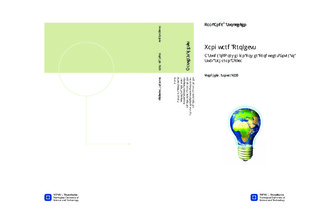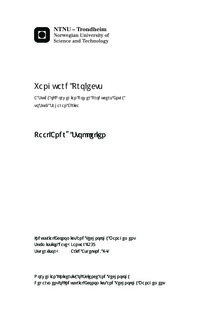| dc.description.abstract | This paper addresses organizations use of vanguard projects as a means for organizational learning and knowledge transfer when entering culturally distant markets. Existing research theories on organizational learning and knowledge management have been connected to theories of vanguard projects and illustrated in a research framework. This framework, together with an existing project capability-building (PCB) model, has constituted the theoretical cornerstone of this case study research. A large part of the information gathering has been through case study interviews of three Norwegian renewable energy companies who have had a recent market entry to sub- Saharan Africa (SSA). These interviews have given unique, first-hand information about their practices when entering these markets. The PCB framework, from where vanguard projects constitute a subset, is a useful tool for comparing and analysing a firm?s use of novel base moving projects to search, discover and test new market opportunities. Vanguard projects as applicable entry strategy to culturally distant markets in SSA were identified in the literature study and assessed using interviews as case studies. This link is not previously drawn in theory despite the seemingly good applicability of vanguard project theory for analysing such market entries. Vanguard projects were identified in all three case companies and the PCB framework was proven useful in pinpointing strengths and weaknesses with each company?s entry to SSA.Findings indicate that firms use vanguard projects to learn, create preliminary capabilities and gain the first hand experience needed to make informed judgements and decisions about further investments in culturally distant, emerging markets. These projects can be successful although they fail to deliver tangible results because learning and experience are as important measures of success as time, cost and quality. Knowledge transfer, sharing and creation practices must be in place for firms to capitalize on learning and experience from vanguard projects. First and foremost it must be done from one project to the next in a project-to-project learning phase and then from the projects to the organization. Only when project-to-organization learning has occurred will the company be able to fully exploit previously gained knowledge and experience, and provide the necessary top-down strategic support needed to facilitate a growing number of similar projects. Vanguard projects are costly explorations that rely on future exploitation of knowledge and gained experience in order to be considered fruitful endeavours. Concrete examples from the case studies show how a shared organizational understanding of cultural and environmental contingencies helps towards achieving the organization-to-project support needed to fully exploit the opportunities in the new market. The discussion in this paper suggests that learning is the most imperative task of any organization?s market entry to immature and culturally different emerging markets. Success in these markets is more often a by-product of learning than learning is a by-product of success. Entering Africa requires learning and experience and findings indicates the only viable way of getting that is by trial-and-error through vanguard projects. | nb_NO |

